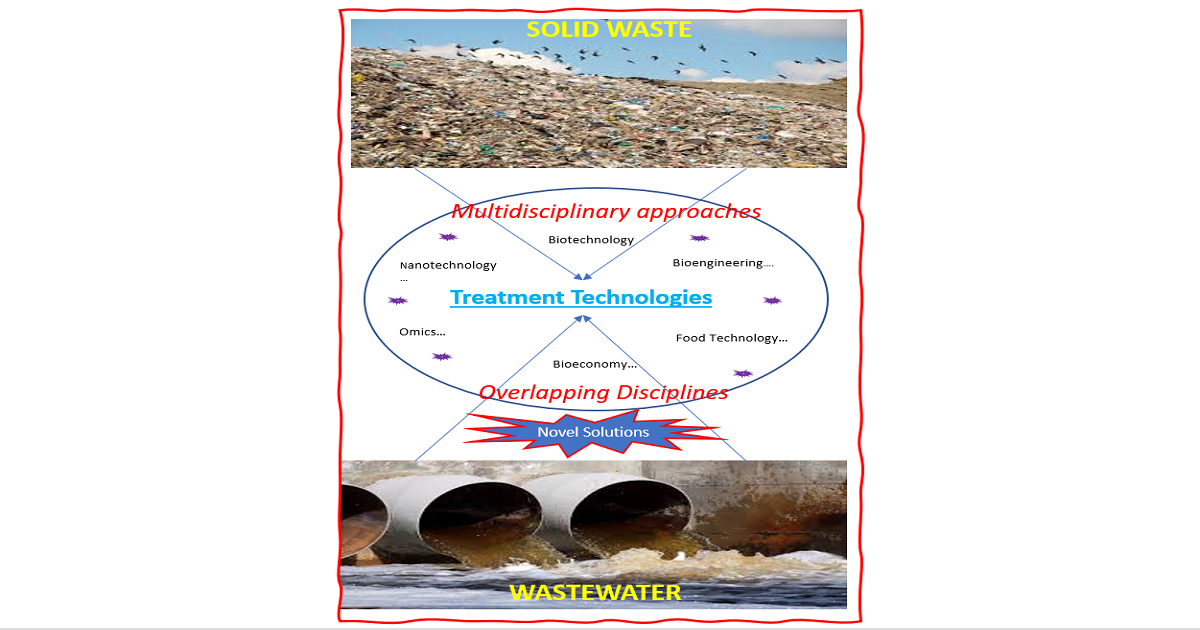Wastewater, Solid Waste and Treatment Technologies
A special issue of Applied Sciences (ISSN 2076-3417). This special issue belongs to the section "Environmental Sciences".
Deadline for manuscript submissions: closed (20 February 2023) | Viewed by 2609

Special Issue Editors
Interests: waste treatment; food technology; waste management; biotechnology; bioprocessing; environmental protection; fermentation technology; biocontrol
Special Issues, Collections and Topics in MDPI journals
Interests: membrane bioreactor development; waste/water treatment; microbial fermentation; bioprocessing systems; biofilm engineering; microsensor technology
Special Issue Information
Dear Colleagues,
Despite significant efforts made in managing waste and pollution, many systems or process-related challenges are still encountered. Therefore, there is an urgent desire for different disciplines to their focus attention on these challenges; hence, multi/interdisciplinary approach systems are widely recommended in achieving the ambitious concept of the circular economy. Therefore, this Special Issue is intended to present new ideas and experimental results in the fields of wastewater, solid waste, water pollution, treatment technologies and other related disciplines.
Areas relevant to waste management include, but are not limited to, waste reduction, waste treatment technologies, water pollution control, waste recycling, waste treatment techniques, anaerobic digestion, bioremediation, environmental protection and others. Novel waste management solutions based on omics research are also topics of interest.
This Special Issue will publish high-quality, original research papers in the overlapping fields of: biotechnology, bioeconomy, food technology, omics, bioengineering, bioprocessing technology, nanotechnology and others.
Dr. Boredi Silas Chidi
Dr. Seteno Karabo Ntwampe
Guest Editors
Manuscript Submission Information
Manuscripts should be submitted online at www.mdpi.com by registering and logging in to this website. Once you are registered, click here to go to the submission form. Manuscripts can be submitted until the deadline. All submissions that pass pre-check are peer-reviewed. Accepted papers will be published continuously in the journal (as soon as accepted) and will be listed together on the special issue website. Research articles, review articles as well as short communications are invited. For planned papers, a title and short abstract (about 100 words) can be sent to the Editorial Office for announcement on this website.
Submitted manuscripts should not have been published previously, nor be under consideration for publication elsewhere (except conference proceedings papers). All manuscripts are thoroughly refereed through a single-blind peer-review process. A guide for authors and other relevant information for submission of manuscripts is available on the Instructions for Authors page. Applied Sciences is an international peer-reviewed open access semimonthly journal published by MDPI.
Please visit the Instructions for Authors page before submitting a manuscript. The Article Processing Charge (APC) for publication in this open access journal is 2400 CHF (Swiss Francs). Submitted papers should be well formatted and use good English. Authors may use MDPI's English editing service prior to publication or during author revisions.
Keywords
- wastewater
- anaerobic digestion
- water pollution
- sustainable economy
- omics
- solid waste
- bioremediation
- bioprocessing
- treatment technologies
- biological treatments






